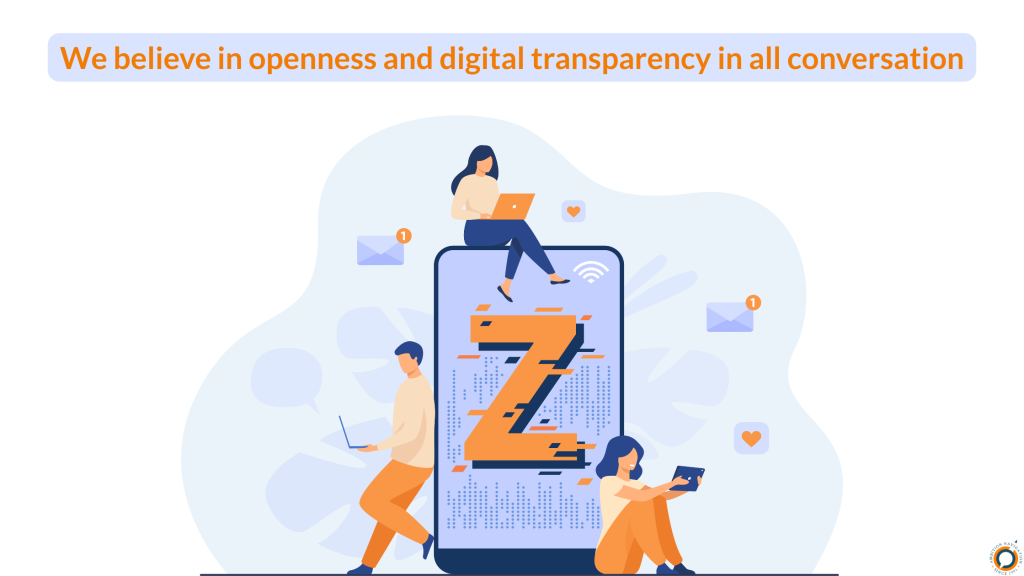“In the absence of transparency, people always assume the worst.” – James Clear

When it comes to job ads, few things shine a brighter light on trust than salary transparency. For years, pay has been the unspoken part of the hiring equation, tiptoed around, kept vague, or saved for the final interview. But times are changing.
The Importance of Pay Transparency in Recruitment
Gen Z, LinkedIn-savvy professionals, and candidates from across different fields are all asking the same thing: Why should I invest time applying if I don’t even know if it’s worth it?
In this article, we explore whether publishing salary bands is the smart move employers need, or a risky leap that could create more questions than answers.
Why Salary Disclosure Is on the Rise
In the age of LinkedIn salary insights, Glassdoor reviews, and unfiltered TikTok advice, silence around pay feels like a red flag. Especially for Gen Z, a generation raised on openness and digital transparency. Salary info isn’t a bonus, it’s expected.

A recent LinkedIn study found that 91% of job seekers say salary details impact their decision to apply. For younger professionals facing a cost-of-living crunch, salary disclosure signals fairness and trust.
It also matters to diverse candidates, who are more likely to experience pay gaps. Listing salary bands send a message: we value equity, and we have nothing to hide.
At ABL Recruitment, this isn’t just theory, 99% of our clients now include salary info, and the result is clear: stronger applications and quicker, more confident hires.
The Employer’s Dilemma: Why It Feels Risky
Despite growing pressure, some employers still hesitate to disclose salary, and for understandable reasons:
- Internal flashback from employees.
- Worry about losing the power of negotiation with candidates.
- Market competitions on approach top talents.
Including wages in job posting may feel risky. But in a world where trust drives talent, silence can cost you more.
The Legal Landscape: UK Trends to Watch
The UK hasn’t made salary transparency a legal requirement, yet. But all signs point in one direction.
For the last years, the government launched a pay transparency pilot, asking participating employers to include salary info in job ads. The goal? Reduce pay gaps and set new standards across industries.
Globally, the shift is already well underway. Norway, the Netherlands, and parts of the US (like New York and California) now enforce this trend by law.
And here’s a surprising fact: the UK is currently one of the most transparent hiring markets in Europe, especially among ABL clients.
Bottom line? It’s not a question of if this becomes standard, but when.
What Job Seekers Are Really Thinking
When salary isn’t listed, candidates often assume:
- The pay is low.
- The company may have something to hide.
- Applying might be a waste of time.
In competitive industries, like multilingual recruitment, where candidates are highly skilled and in high demand, again, these assumptions can cost you the right person.
So, Should You List the Salary?
The smart move for 2025? Yes, but with strategy.
Here’s how to do it well:
✅ Provide a clear range, and be prepared to justify it.
✅ Link salary to experience or performance indicators.
✅ Pair the figure with strong benefits and growth opportunities.
✅ Use transparency to differentiate your brand in a tight talent market.
Being upfront isn’t just ethical, it’s efficient. It saves time on mismatched expectations and signals to top-tier candidates that your business is forward-thinking and fair.
Final Thoughts

Pay transparency isn’t radical anymore, it’s becoming the norm. And for employers who want to attract top multilingual and diverse talent, it’s one of the simplest ways to stand out.
Publishing salary bands doesn’t just show what a role pays. It shows what you value, fairness, clarity, and respect for a candidate’s time and effort.
At ABL Recruitment, we stay ahead of hiring trends so you don’t have to. Whether you’re shaping a smarter salary strategy or expanding your global team, we’re here to help you hire with confidence.
Contact us for more information or if you would like to have a salary benchmarking.











